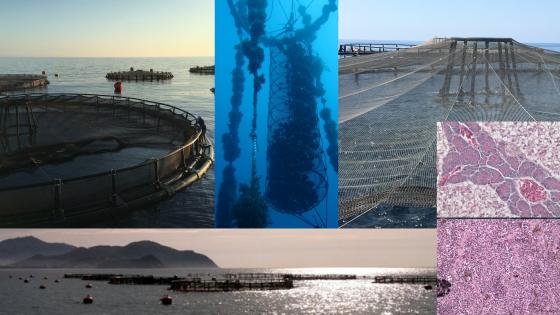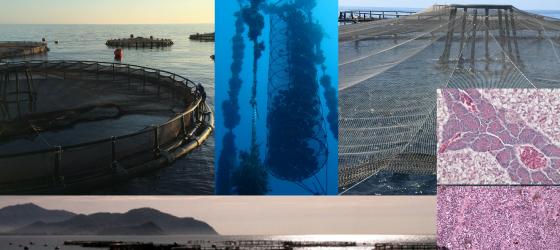Sustainable aquaculture aims at meeting the demand of the growing human population, responding to some of the Sustainable Development Goals of the United Nations. Moreover, marine biological resources, including those deriving from fishing and aquaculture waste, have enormous potential for reuse in a circular economy perspective, both in terms of biomass and of biomolecules.
This research theme, gathers DISTAV researchers who develop multiple research activities. These include:
- Assessing the impact on marine communities (V. Asnaghi, M. Chiantore, C. Paoli, P. Vassallo)
- Territorial planning for identifying suitable sites and decision support systems (C. Paoli, P. Povero, P. Vassallo)
- Implementation of integrated cultivation techniques, with high potential for sustainability (IMTA techniques) (V. Asnaghi, M. Chiantore)
- Experimentation of breeding techniques of new species, in particular invertebrates, also with a view to ecological restoration (V. Asnaghi, S. Candiani, M. Chiantore)
- Evaluation of the health status of organisms reared using a multibiomarker approach (T. Balbi, L. Canesi, S. Ferrando)
- Assessment of the state of natural capital, of the functions and ecosystem services provided, with a view to sustainable development (C. Paoli, P. Povero, P. Vassallo)
- Recovery and valorisation of production waste (V. Asnaghi, M. Chiantore, E. Grasselli)
- Sustainability in aquaculture of feed derived from marine organisms through the use of model organisms (S. Candiani, M. Chiantore)
- Purification and characterization of bioactive molecules from waste biomass and from targeted farms (M. Giovine, M. Pozzolini)
- Analysis of costs and benefits of aquaculture farms (C. Paoli, P. Povero, P. Vassallo)

